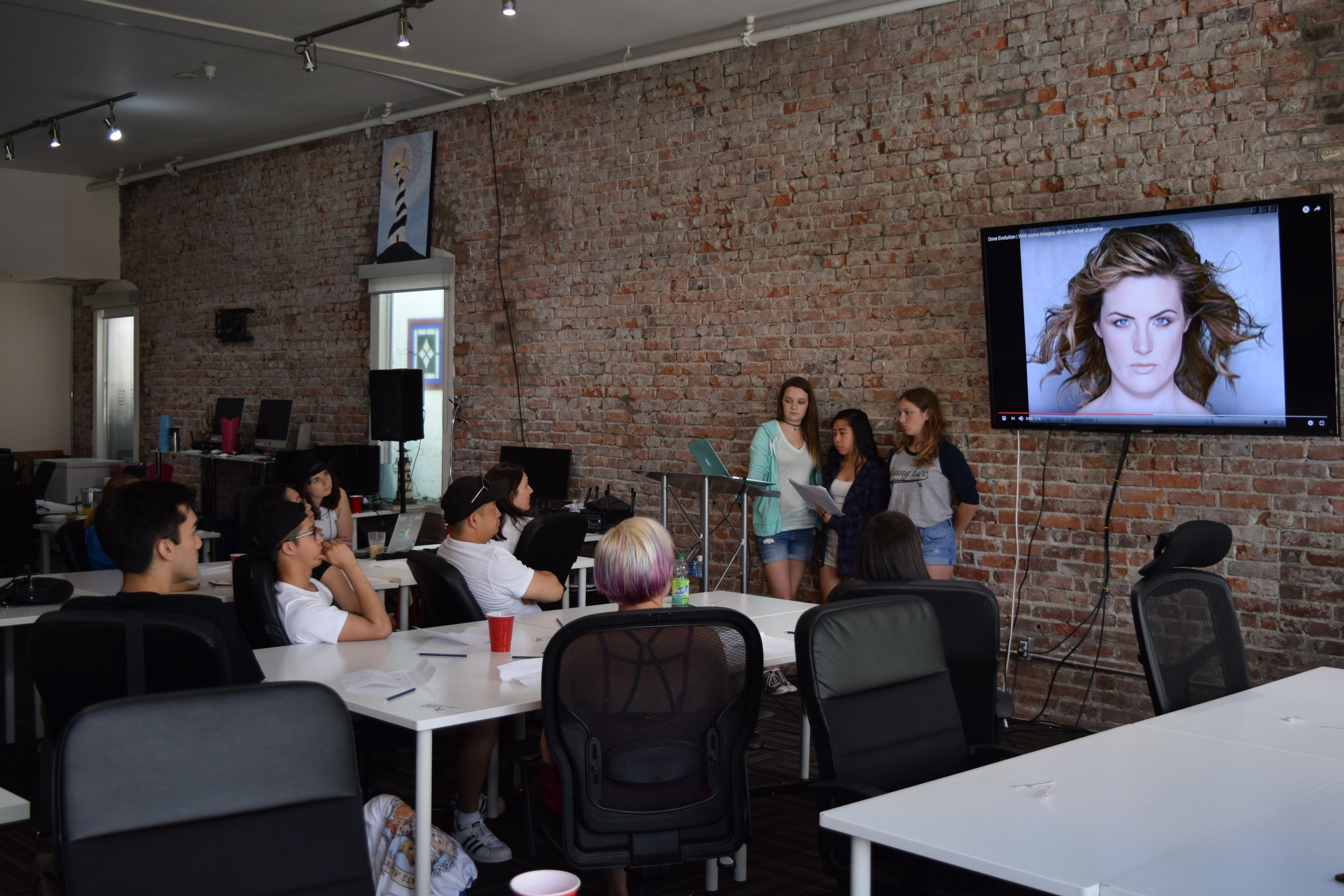In this social media age where the youth demographic is expected to be proficient in all media platforms and propel this technological evolution at an unprecedented rate, it truly matters who continues to take up space and whose voices are at the table.
If young people, particularly marginalized and underrepresented voices, “don’t have the skills to use online, they don’t have a voice in society,” said Megan Ryland, program coordinator of #HerDigitalVisions, a project of B.C.-based organization Access to Media Education Society (AMES).
AMES, which recently celebrated its 20th anniversary on Sept. 22, uses the aspects of facilitation through digital media and art to engage marginalized youth in telling their stories.
#HerDigitalVisions, having just finished its fifth iteration, is an afterschool program that works with self-identified girls, ages 13 to 15 (ages have varied in other iterations), building media literacy skills in order to better establish power in an online world.
According to Ryland, the way AMES operates is an activist tool in and of itself. Programming begins with conversations surrounding oppression and how media-making can be used as a tool to respond to this struggle.
When the technology has changed, but the game is still rigged, this education becomes all the more essential.
When asked about the necessity of equality in representation in media- and technology-related fields, Ryland points out that for many young women facing systemic barriers, having little access to tools to “tell their own stories, stories that are historically silenced,” ensures that there is a digital divide.
With the number of women in the computer sciences at a low, one wonders where the cultural shift is to encourage and provide access to these resources for self-identified women and girls.
These changes and progressive media icons “don’t just pop into existence,” Ryland said. A lot of potential skills and ideas are hoarded and pushed aside, for an often white, cis-male lens. Her example — “How many trans* directors can one think of?” — likely elicits a long pause. This overlong silence easily hones in on whose voices our culture normalizes at the expense of countless others.
For true social change to take place, young women and other marginalized groups must be leaders at the table when media decisions are made and their policies enacted. Fortunately, the #HerDigitalVisions curriculum includes skill-building on topics such as Photoshop, identifying fake news, self-advocacy, conflict resolution, media literacy and even creating online campaigns.
“We want to show the digital world as a place of possibilities” for young women, said Ryland.
The program curriculum, as a necessity, has included education around cyberbullying, privacy and security. Its prospective results were to empower young women in having the skills and power to carve out space for personal contributions both in online and media-related communities. This means not only equipping young women with the skills to be digital citizens, but also detailing how to incorporate this digital world into everyday life, making it empowering and affirming.
The project’s most recent iteration ended with media creation, in which the participants had the opportunity to create YouTube videos as a way to respond to the curriculum and utilize the course materials in a positive way. It is significant for the project to hold space on YouTube, a platform often rendered by dominant voices in society and not always friendly to marginalized communities.
For the girls, to claim space online is to send the message that the Internet — and its potential as a democratizing force — is a vessel for young women and their stories, and not just for those who have been left holding the microphone all this time.
#HerDigitalVisions helps to foster a new generation of young self-identified women who will be media makers.
Like this article? Please chip in to keep stories like these coming.




